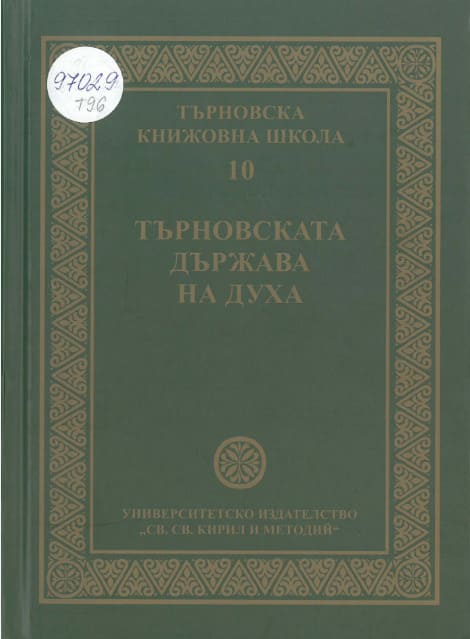Граматикът и неговият статус: монах, църковник или светско лице
The Grammarian and His Status: Monk, Clerk or Secular Person
Author(s): Bistra Nikolova
Subject(s): Christian Theology and Religion, History, Language studies, Language and Literature Studies, Cultural history, Middle Ages, Theology and Religion, South Slavic Languages, 6th to 12th Centuries, Eastern Orthodoxy, Translation Studies
Published by: Великотърновски университет „Св. св. Кирил и Методий”
Keywords: grammarian; monk; church; manuscript; Old Bulgarian; notes; monastery
Summary/Abstract: The subject of this article is the social status of 22 grammarians known from the medieval Bulgarian sources. The period on which names “grammarians” are found in the Bulgarian Middle Ages is of Xth to beginning of XVth century. One of the goals is to point out what is the status of the “grammarian” in Medieval Bulgaria – is it a service, an alias, a title or an epithet. The places which are connected to these people have been researched. The work of grammarians is mainly connected with copying theological books or with translations from Greek to Old Bulgarian. The Old Bulgarian grammarians are mostly secular persons who work for churches or monasteries. Their work is custom-made or in some cases the work for a fee. The alias “grammarian” in medieval Bulgaria has no official character, it is not a title with designated service. In indicates to certain professional skill, level of education and deserved status higher than the one that an ordinary medieval scribe has.
Book: Търновска книжовна школа – пространства на паметта. Том 11
- Page Range: 555-569
- Page Count: 15
- Publication Year: 2019
- Language: English, Bulgarian
- Content File-PDF

